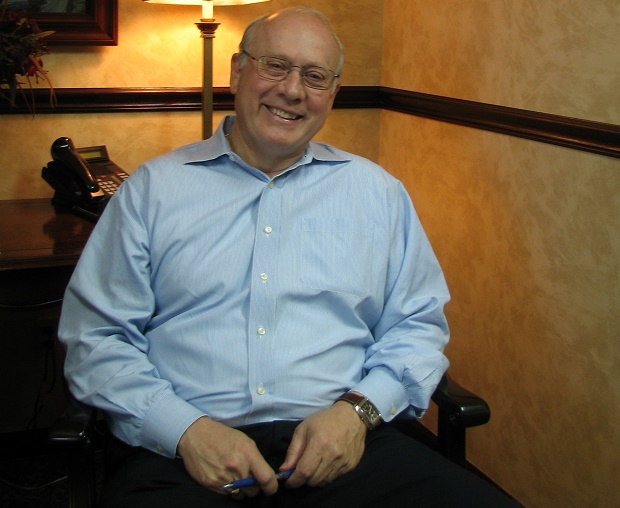In 2016 US field, billionaire donor finds his candidate

In this July 11, 2008 file photo, Frank VanderSloot, who owns Melaleuca, Inc., a healthcare products company, is seen in Idaho Falls, Idaho. VanderSloot says he’ll support Republican Marco Rubio for president, another big donor endorsement for the Florida senator. AP File Photo
WASHINGTON, United States—Frank VanderSloot is a businessman, not a famous public figure. But such is his financial and political clout that he has essentially conducted job interviews with many Republican candidates for the most powerful job in the world.
The billionaire is one of America’s political mega-donors, a class of elites who are using relaxed campaign finance laws to flood elections with massive funding as they seek to shape the 2016 presidential race’s outcome.
His phone has been “ringing off the hook” this year, including from calls by candidates themselves, VanderSloot, 67, told AFP in a telephone interview.
“We had lots of phone calls often about who we were going to support.”
At least five candidates have traveled to his out-of-the-way Idaho homestead to curry favor with the entrepreneur.
Article continues after this advertisementVanderSloot, chief executive of wellness and nutrition company Melaleuca, is one of several wealthy and politically engaged Americans on whom the Republican Party is counting to fuel the 2016 campaigns, operations that are expected to collectively run into the billions of dollars.
Article continues after this advertisementMany donors and candidates find the campaign finance system obscene, but none wants to be first to wean himself off the money spigot.
For VanderSloot, the structure is largely fair: nothing prevents Democrats from participating, and labor unions are notorious for handsomely funding liberal candidates.
But conservatives are clearly benefiting from more mega-donor backing, to the tune of six or even seven figures by the wealthiest contributors.
VanderSloot pledged $1.1 million in 2012 to support Republican nominee Mitt Romney, through organizations that can receive unlimited donations from individuals and corporations.
“I’m a strong proponent of donors being disclosed,” VanderSloot said. “Stand up for what you believe. Yell from the rooftops.”
He was referring to opaque and deeply controversial legal structures that allow for certain non-profit US organizations to maintain total secrecy when it comes to their donor list.
“I do not think it’s a perfect process, but it’s the process that we have,” VanderSloot said. “And I think not to become involved in it is a big mistake.”
Defending free enterprise
VanderSloot, his wife and Melaleuca have given at least $2.4 million over the years to the Republican Party and dozens of White House hopefuls and congressional candidates, according to official reports compiled by the Center for Responsive Politics.
Asked about his 2016 budget, he laughed: “We have not set on a total dollar expenditure,” he said. The figure will likely remain undisclosed until campaign declarations.
VanderSloot insisted he is not looking to manipulate the next Oval Office occupant.
“I don’t want or need any personal favors,” he said.
His goal is to elect someone eager to preserve the capitalist model that has allowed America to prosper, and him to make his fortune.
Like many successful businessmen, VanderSloot likes to tout his humble origins. His father was a rail worker, and it was only through education and a free-market system that VanderSloot’s career took off.
“As I’ve grown older, and hopefully wiser, I tend not to take that for granted. We could lose that,” he warned.
Meanwhile, VanderSloot gets to spend significant time with the candidates who may ultimately lead the most powerful country in the world. He lets them fly in his private jet, and meets them regularly when they travel.
The winner of VanderSloot’s invisible primary? Marco Rubio, the telegenic Cuban-American senator from Florida.
VanderSloot has huddled with Rubio at least four times—opportunities, the businessman said, that convinced him the 44-year-old is the strongest Republican aiming to succeed outgoing Democratic President Barack Obama, even though Rubio remains in third place in primary polling.
He said he has watched Rubio interact at the airport, talking with baggage handlers and shaking hands with ticketing agents before he meets the well-heeled donors he is courting.
It is an engagement with everyday voters that VanderSloot said is telling.
“Of all the candidates, I’ve never seen the interaction one on one with average people” more than Rubio does, he said. “He will relate to them better than any candidate.”
VanderSloot said he is committed to Rubio, and will help him raise funds—a development likely to result in fewer calls from the other candidates.
“Maybe that will die down now,” he said.
RELATED STORIES
Trump, Carson defend seriousness of White House bids
Hillary Clinton challenges Jeb Bush on immigration as Republicans shift